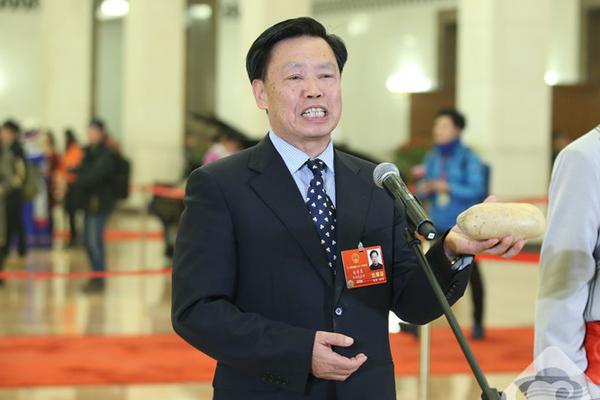
1. The five functions of the operating system are processor management, memory management, device management, file management and job management. Processor management The most basic function of processor management is to process interrupt events. After configuring the operating system, various events can be processed.
2. The main function of the computer operating system is process management, and its work is mainly process scheduling. In the case of a single user and a single taskNext, the processor is only monopolized by one user's task, and the process management work is very simple.
3. Operating System (abbreviation: OS) is a group of interrelated system software programs that supervise and control computer operation, use and run hardware, software resources and provide public services to organize user interaction.
4. Five major management functions of the operating system: (1) Job management: including tasks, interface management, human-computer interaction, graphical interface, voice control and virtual reality, etc. ( 2) File management: also known as information management. ( 3) Storage management: The essence is the management of storage "space", which mainly refers to the management of the main memory.
Any information system has five basic functions, namely: information collection and recording (input); information storage; information processing; information transmission; information output .
According to the functional introduction of the information system, the information system has five basic functions: input, storage, processing, output and control. Different functions have different functions, such as input function: the input function of the information system is determined by the purpose to be achieved by the system, the ability of the system and the permission of the information environment.
Five basic functions of the information system: input, storage, processing, output and control. Input function: The input function of the information system is determined by the purpose to be achieved by the system, the ability of the system and the permission of the information environment.Storage function: Storage function refers to the ability of the system to store various information and data. Mainly including: statistical functions.
The operating system has five functions: processor management: mainly controls and manages the work of the CPU. Storage management: mainly allocate and manage memory. Device management: mainly manage basic input and output devices. File management: responsible for the organization, storage, operation and protection of computer files.
The functions of the computer operating system include: processor management, memory management, device management, file management, job management and other functional modules. Processor management. The most basic function of processor management is to handle interrupt events. The processor can only detect interrupt events and generate interrupts and cannot process them.
The main function of the computer operating system is process management, and its main work is process scheduling. In the case of a single user and a single task, the processor is only monopolized by one user's task, and the work of process management is very simple.
The main functions of the operating system are process and processor management, job management, storage management, device management and file management, as follows: process and processor management. Because the execution of the program must rely on the processor, only one program flow can be processed and executed at any time. Homework management.
I) Processor management The most basic function of processor management is to handle interrupt events. The processor can only detect interrupt events and generate interrupts, and cannot handle these interrupt events. After configuring the operating system, all types of events can be handled.Another function of processor management is processor scheduling.
Five management functions of the operating system: job management: including tasks, interface management, human-computer interaction, graphical interface, voice control and virtual reality, etc. File management: also known as information management. Storage management: The essence is the management of storage "space", which mainly refers to the management of the main memory.

The storage management function of the operating system is to manage memory resources. It mainly realizes memory allocation and recovery, storage protection and memory expansion. The device management of the device management operating system is responsible for allocating and recycling external devices, and controlling external devices to operate according to the requirements of user programs.
The functions of the computer operating system include: processor management, memory management, device management, file management, job management and other functional modules. Processor management. The most basic function of processor management is to handle interrupt events. The processor can only detect interrupt events and generate interrupts and cannot process them.
The five functions of the operating system are processor management, memory management, device management, file management and job management.Processor management The most basic function of processor management is to process interrupt events. After configuring the operating system, various events can be processed.
Casino Plus GCash login-APP, download it now, new users will receive a novice gift pack.
1. The five functions of the operating system are processor management, memory management, device management, file management and job management. Processor management The most basic function of processor management is to process interrupt events. After configuring the operating system, various events can be processed.
2. The main function of the computer operating system is process management, and its work is mainly process scheduling. In the case of a single user and a single taskNext, the processor is only monopolized by one user's task, and the process management work is very simple.
3. Operating System (abbreviation: OS) is a group of interrelated system software programs that supervise and control computer operation, use and run hardware, software resources and provide public services to organize user interaction.
4. Five major management functions of the operating system: (1) Job management: including tasks, interface management, human-computer interaction, graphical interface, voice control and virtual reality, etc. ( 2) File management: also known as information management. ( 3) Storage management: The essence is the management of storage "space", which mainly refers to the management of the main memory.
Any information system has five basic functions, namely: information collection and recording (input); information storage; information processing; information transmission; information output .
According to the functional introduction of the information system, the information system has five basic functions: input, storage, processing, output and control. Different functions have different functions, such as input function: the input function of the information system is determined by the purpose to be achieved by the system, the ability of the system and the permission of the information environment.
Five basic functions of the information system: input, storage, processing, output and control. Input function: The input function of the information system is determined by the purpose to be achieved by the system, the ability of the system and the permission of the information environment.Storage function: Storage function refers to the ability of the system to store various information and data. Mainly including: statistical functions.
The operating system has five functions: processor management: mainly controls and manages the work of the CPU. Storage management: mainly allocate and manage memory. Device management: mainly manage basic input and output devices. File management: responsible for the organization, storage, operation and protection of computer files.
The functions of the computer operating system include: processor management, memory management, device management, file management, job management and other functional modules. Processor management. The most basic function of processor management is to handle interrupt events. The processor can only detect interrupt events and generate interrupts and cannot process them.
The main function of the computer operating system is process management, and its main work is process scheduling. In the case of a single user and a single task, the processor is only monopolized by one user's task, and the work of process management is very simple.
The main functions of the operating system are process and processor management, job management, storage management, device management and file management, as follows: process and processor management. Because the execution of the program must rely on the processor, only one program flow can be processed and executed at any time. Homework management.
I) Processor management The most basic function of processor management is to handle interrupt events. The processor can only detect interrupt events and generate interrupts, and cannot handle these interrupt events. After configuring the operating system, all types of events can be handled.Another function of processor management is processor scheduling.
Five management functions of the operating system: job management: including tasks, interface management, human-computer interaction, graphical interface, voice control and virtual reality, etc. File management: also known as information management. Storage management: The essence is the management of storage "space", which mainly refers to the management of the main memory.

The storage management function of the operating system is to manage memory resources. It mainly realizes memory allocation and recovery, storage protection and memory expansion. The device management of the device management operating system is responsible for allocating and recycling external devices, and controlling external devices to operate according to the requirements of user programs.
The functions of the computer operating system include: processor management, memory management, device management, file management, job management and other functional modules. Processor management. The most basic function of processor management is to handle interrupt events. The processor can only detect interrupt events and generate interrupts and cannot process them.
The five functions of the operating system are processor management, memory management, device management, file management and job management.Processor management The most basic function of processor management is to process interrupt events. After configuring the operating system, various events can be processed.
Hearthstone arena deck Builder
author: 2025-01-13 12:33Hearthstone Arena class tier list 2024
author: 2025-01-13 10:51App to watch Champions League live free
author: 2025-01-13 10:42 UEFA TV
UEFA TV
978.97MB
Check Hearthstone arena
Hearthstone arena
626.92MB
Check UEFA Champions League live streaming free
UEFA Champions League live streaming free
575.86MB
Check Hearthstone Wild Decks
Hearthstone Wild Decks
498.96MB
Check DigiPlus stock
DigiPlus stock
827.69MB
Check Hearthstone Arena class tier list 2024
Hearthstone Arena class tier list 2024
739.93MB
Check UEFA Europa League
UEFA Europa League
485.71MB
Check 100 free bonus casino no deposit GCash
100 free bonus casino no deposit GCash
476.61MB
Check casino plus free 100
casino plus free 100
517.75MB
Check bingo plus update today
bingo plus update today
618.88MB
Check European Cup live
European Cup live
429.37MB
Check Europa League app
Europa League app
633.44MB
Check Casino Plus free 100
Casino Plus free 100
318.21MB
Check UEFA Europa League
UEFA Europa League
315.71MB
Check UEFA Champions League standings
UEFA Champions League standings
263.98MB
Check Bingo Plus stock
Bingo Plus stock
419.31MB
Check Hearthstone Wild Decks
Hearthstone Wild Decks
658.49MB
Check Europa League app
Europa League app
869.37MB
Check Hearthstone Arena class tier list 2024
Hearthstone Arena class tier list 2024
532.21MB
Check Hearthstone Arena class tier list 2024
Hearthstone Arena class tier list 2024
924.91MB
Check Hearthstone arena deck Builder
Hearthstone arena deck Builder
559.36MB
Check Hearthstone Arena Tier List
Hearthstone Arena Tier List
365.72MB
Check UEFA live free
UEFA live free
436.28MB
Check DigiPlus
DigiPlus
444.55MB
Check Europa League app
Europa League app
157.69MB
Check UEFA Champions League standings
UEFA Champions League standings
487.69MB
Check European Cup live
European Cup live
896.81MB
Check Casino Plus
Casino Plus
314.43MB
Check Casino Plus GCash login
Casino Plus GCash login
524.59MB
Check bingo plus update today Philippines
bingo plus update today Philippines
192.61MB
Check bingo plus update today
bingo plus update today
815.48MB
Check UEFA live free
UEFA live free
646.83MB
Check Hearthstone Arena Tier List
Hearthstone Arena Tier List
175.15MB
Check Casino Plus
Casino Plus
776.44MB
Check 100 free bonus casino no deposit GCash
100 free bonus casino no deposit GCash
984.52MB
Check bingo plus update today
bingo plus update today
971.23MB
Check
Scan to install
Casino Plus GCash login to discover more
Netizen comments More
2774 UEFA Champions League
2025-01-13 12:53 recommend
2969 Casino Plus
2025-01-13 12:23 recommend
2967 Hearthstone Arena Tier List
2025-01-13 11:49 recommend
2575 100 free bonus casino no deposit GCash
2025-01-13 11:16 recommend
1220 Casino Plus
2025-01-13 11:11 recommend